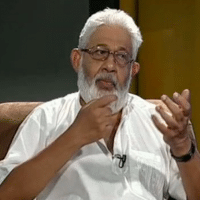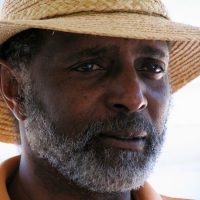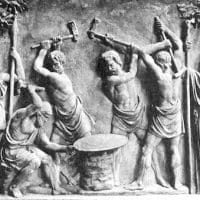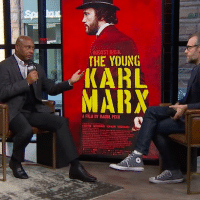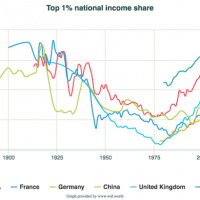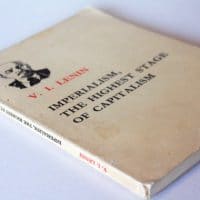-
Does capitalism depend on credit?
Credit is essential for the continuation of capitalism but also a major source of its instability, writes the Marx Memorial Library.
-
Roxanne Dunbar-Ortiz, Loaded & Gregg Levine on Fukushima Daichi radiation
Roxanne Dunbar-Ortiz tells us about her new book, Loaded: A Disarming History of the Second Amendment.
Then we talk with journalist Gregg Levine about his special investigation for The Nation Magazine into the deaths and illnesses afflicting U.S. sailors exposed to radiation from the Fukushima Daichi meltdown. It’s titled “Seven Years on, Sailors Exposed to Fukushima Radiation Seek Their Day in Court.”
-
In defence of Metabolic Rift Theory
One Marxist line of inquiry into environmental problems has outshone all others in creativity and productivity: the theory of the metabolic rift.
-
French ruling elite brays for war in Syria amid U.S.-UK threats against Russia
As British Prime Minister Theresa May moves to cut off relations with Russia after the mysterious poisoning of former British spy Sergei Skripal, a debate over war policy is erupting in the French ruling elite.
-
Imperialism today: a critical assessment of Latin American dependency theory
The main theorist of dependency anticipated trends of neoliberal globalization. He analyzed productive globalization, the centrality of exploitation and the relative weight of surplus value transfers. But the employment crisis exceeds what was envisaged by Marini, in a scenario disrupted by the mutation of the United States, the collapse of the USSR and the rise of China.
-
Is Marxism science? Part 1: Darwin, Marx and the scientific method
Ringa Ranga Rajah, a London devotee of recently departed Ambalavanar Siva, complained bitterly last year when 14 March went by and I neglected Marx and Einstein. The former died on 14 March 1883 and the latter was born on 14 March 1879. I promised to make amends and this year Sundays 11 and 18 straddle the date.
-
Biofinance
Capitalism has been the subject of too many conflicting definitions for any of the claims that follow to have any purchase on truth — understood as an adequation to the real. Beneath the numerous disagreements, however, a common substratum can be gleaned between the liberal Smithian, and the classical Marxist and Weberian positions: capitalism is a system geared at fostering accumulation for its own sake.
-
A Review of The Young Karl Marx
The success of The Young Karl Marx derives from Peck’s ability to demonstrate the relevance of Marx for the present.
-
What do we mean by socialism?
What the hell is socialism, anyway? Over the last decade, it has been one of the most frequently looked up words in the Merriam-Webster dictionary. And it’s easy to see why so many people feel the need for clarification.
-
NASA Studies an unusual Arctic warming event
Winter temperatures are soaring in the Arctic for the fourth winter in a row. The heat, accompanied by moist air, is entering the Arctic not only through the sector of the North Atlantic Ocean that lies between Greenland and Europe, as it has done in previous years, but is also coming from the North Pacific through the Bering Strait.
-
Where does women’s oppression come from?
The liberation of women must be at the heart of the struggle for socialism, argues the MARX MEMORIAL LIBRARY
-
The fight over free speech on campus
On university campuses around the world, “free speech” is becoming the favourite slogan of the right, sure to be raised during campus political controversies.
-
The political economy of space and time in Eduardo Galeano
Uruguyan novelist and historian Eduardo Galeano (1940–2015) wrote more than 40 books. Monthly Review lauded his creative non-fiction Open Veins of Latin America: Five Centuries of the Pillage of a Continent (1973[1971]) as ‘outstanding political economy … and perhaps the finest description of primitive capital accumulation since Marx’.
-
Google’s stranglehold on information
Last September, Verge writer Cat Ferguson uncovered that Google had unwittingly allowed shady generators to manipulate its AdWords system.
-
Finding ways to be one: The making of Cedric J. Robinson’s radical Black politics.
Historian Robin D.G. Kelley explores the radical Black politics of scholar Cedric J. Robinson—from his historical understanding of race and capitalism as inherently inseparable systems, to his vision of the possibilities of politics, rooted deep in struggles past and present.
-
The gong of history; or, what is a human?
Every great historical epoch in the freedom struggle raises the question: what is a human? The answer changes, to quote Askia Muhammad Toure of the Revolutionary Action Movement, with “the Gong of History.” Amid all the confusing din of history, a note may sound that makes it audible and intelligible.
-
Raoul Peck speaks on ‘The Young Karl Marx’
Written and directed by Raoul Peck, “The Young Karl Marx” follows a 26-year-old writer, researcher and radical named Karl Marx as he embarks, with his wife Jenny, on the road to exile in an age that has created both new prosperity and new problems.
-
Utopia and inequality
Economic inequality is arguably the crucial issue facing contemporary capitalism—especially in the United States but also across the entire world economy.
-
What can Noam Chomsky’s co-author teach us in the age of Trump?
The story goes that Einstein’s theory of relativity began with a simple question: What if a person could sit on a beam of light? A single inquiry led to an entire field of study, and perhaps the world’s most famous scientific breakthrough.
The late Ed Herman’s questions were less playful. They were about war and death, lies and power politics, but they too created entire areas of study. If properly considered, they can even guide us through the perilous age in which we’re living.
-
The best books about colonialism and imperialism
The top 29 books, all appearing on 2 or more “Best Colonialism & Imperialism” book lists are ranked below by how many times they appear. The remaining 200+ titles, as well as the sources we used to make the list are in alphabetical order on the bottom of the page.






